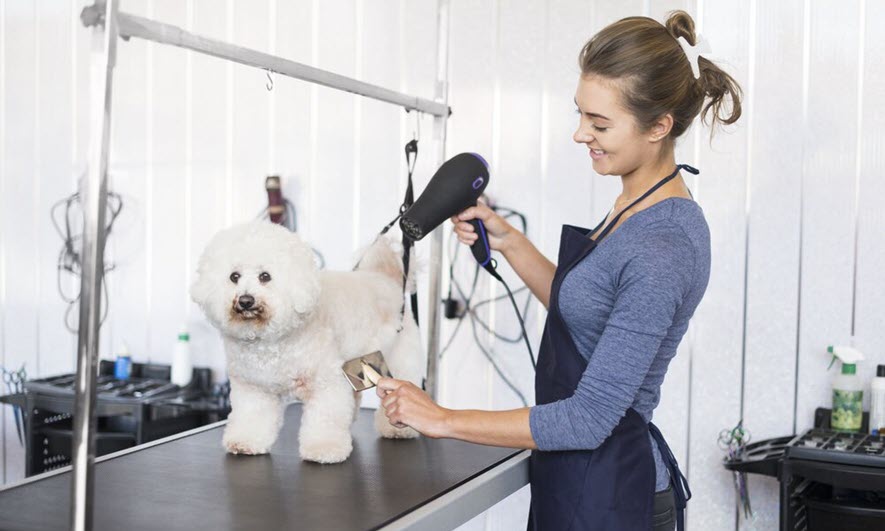
It is a fast-paced profession in veterinary emergency medicine. This field requires dedication and hard work. Many veterinarians in this specialization have to deal with high caseloads, long shifts and unpredictable schedules. They may find it difficult to do their best work for all the animals they care for.
The potential for high salaries for emergency veterinarians is very real. A basic ER veterinarian earns an average salary of $65,649. The top 10 percent of the highest-paid earn $195,000.
The VECCS Career Center has almost 300 job listings for veterinarians. Many of these jobs are located in animal hospitals. Others are in corporate practices chains like BluePearl. These job ads can often include signing bonuses and other perks. One Loveland, CO, practice is seeking an Emergency Veterinarian.
Being board certified and having a DVM can help you get a job in the veterinary field. You may also earn a higher salary for pursuing a specialty. Additional training may be required for certain specialties.

According to the AVMA Veterinary Career Center, 1.6 percent of veterinarians were seeking employment in October. This is a low number but it is indicative of the rising demand for Emergency Veterinarians.
An ER Veterinarian may receive a nice paycheck, but it's not the best job you can find. It's because they have a difficult time finding the right staff to support them, making it harder for them to do their job. They may also be subject to long working hours, a lack of vacations, or poor working conditions.
The salary for an Emergency Room Veterinarian varies depending on where you live. The median salary for an emergency veterinarian in Colorado is $92,851. The median salary for an ER Veterinarian is $92,851. In San Francisco, however, it can be as high as $133,622. The District of Columbia's ER Veterinarian earns a much lower $85,366.
The American College of Veterinary Emergency and Critical Care Society's Task Force is currently recruiting more emergency vets. They expect to send out surveys in January. One survey has some ideas that might help the organization attract more emergency vets.
There is a wide variety of other information to be found on the VECCS Career Center's website. This is a good place for you to start.

VECCS is holding a job Fair in February. The group plans to hire between 2 and 3 new emergency veterinarians. Although they do not know how many jobs they will be hiring, they are hoping to attract more that 1,000 veterinary professionals.
Although the AVMA estimates that there is 113,000 veterinarians working in the United States, the number available for Emergency Veterinarian jobs only represents a fraction. The shortage means that Emergency Veterinarian salaries have fallen in line with rising demand.
FAQ
Are there any signs my dog may be ill?
Many symptoms can indicate that your dog may be sick. Some symptoms are:
-
Vomiting
-
Diarrhea
-
Lethargy
-
Fever
-
Weight loss
-
Reduction in appetite
-
Coughing
-
Difficulty breathing
-
Bleeding from below the nose
-
You can find blood in your stool and urine
These are just a few. Your vet will tell you what to be on the lookout for.
What are the things I should consider before buying an exotic pet?
You should consider several factors before buying an exotic pet. It is important to decide if the animal will be kept as a pet, or if it will be sold for profit. If you're keeping it as a pet, then make sure you have enough space for it. You should also know how much you plan to spend on the animal's care. You will need to take time to look after an animal. But, they are worth it.
If you want to sell the animal you must find someone who is willing to buy it. It is important that anyone who purchases your animal understands how animals are cared for. Make sure you don't feed your pet too much. This could lead to health problems down the line.
You need to thoroughly research exotic pets before buying them. Many websites provide information about various types of pets. Be cautious not to fall for scams.
How often should I brush my dog?
Grooming your dog will make him happy. Grooming your pet helps keep it clean and maintains his coat.
Brushing your dog twice a week is a must. After every meal, brush your dog.
Your dog's fur can be cleaned by brushing it. This will get rid of dirt and hair. He will look better if he brushes his teeth.
Also, make sure to clean his ears.
Statistics
- In fact, according to ASPCA, first-year expenses can sum up to nearly $2,000. (petplay.com)
- It is estimated that the average cost per year of owning a cat or dog is about $1,000. (sspca.org)
- For example, if your policy has a 90% reimbursement rate and you've already met your deductible, your insurer would pay you 90% of the amount you paid the vet, as long as you're still below the coverage limits of your policy. (usnews.com)
- It's among a relatively few companies that provide policies with a full (100%) coverage option, meaning you are not responsible for any co-payment of bills. (money.com)
- A 5% affiliation discount may apply to individuals who belong to select military, law enforcement, and service animal training organizations that have a relationship with Nationwide. (usnews.com)
External Links
How To
How to train your pet dog
A pet dog is an animal companion that provides emotional support and companionship to its owner. It may provide protection against predators and protect other animals.
Pet owners must train their dog to do certain tasks, such as fetching objects, protecting against intruders, obeying orders, performing tricks, and guarding against theft.
The training period usually lasts between six months and two years. The owner teaches the dog basic obedience skills such as how to sit, lay down, stay, come on command, roll over, and walk on command. The dog's owner will also teach it basic commands verbally and how to deal with its natural instincts.
This should include teaching the dog basic behavior and how to handle strangers.